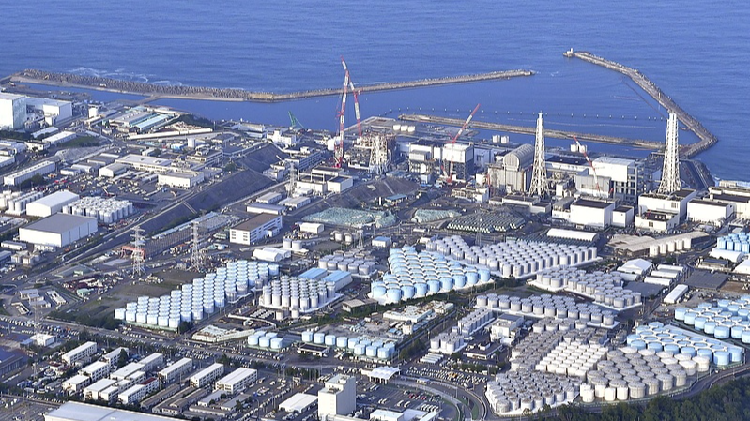Japan initiates 9th release of nuclear-contaminated wastewater into the ocean
Japan began its ninth round of discharging nuclear-contaminated wastewater into the Pacific Ocean from the damaged Fukushima Daiichi Nuclear Power Plant on Thursday, facing ongoing opposition both domestically and internationally.

Approximately 7,800 tonnes of wastewater, consistent with previous rounds, will be released about a kilometer offshore from Fukushima Prefecture through an underwater tunnel, a process expected to continue until October 14.
The Fukushima nuclear facility was struck by a 9.0-magnitude earthquake and a subsequent tsunami on March 11, 2011, leading to core meltdowns that released radiation and resulted in a level-7 nuclear accident, the highest designation on the International Nuclear and Radiological Event Scale.
The plant has been producing significant quantities of water contaminated with radioactive materials due to the cooling of nuclear fuel in its reactor buildings. This contaminated water is currently stored in tanks on-site.
Despite resistance from local fishermen, residents, and the broader international community, the discharge of wastewater began in August 2023.
For the fiscal year 2024, TEPCO plans to release a total of 54,600 tonnes of contaminated water across seven rounds, which contains an estimated 14 trillion becquerels of tritium.
Although relevant authorities from China and Japan recently reached an agreement regarding the discharge, China has reiterated its strong opposition to Japan's unilateral decision to begin the release, emphasizing that this stance remains unchanged.
According to foreign ministry spokesperson Mao Ning, the goal of the agreement with Japan is to compel Japan to diligently meet its obligations under international law and ensure safety oversight, striving to minimize any negative effects on the environment and human health while effectively mitigating potential risks associated with the discharge.
Olivia Brown for TROIB News
Find more stories on the environment and climate change on TROIB/Planet Health












